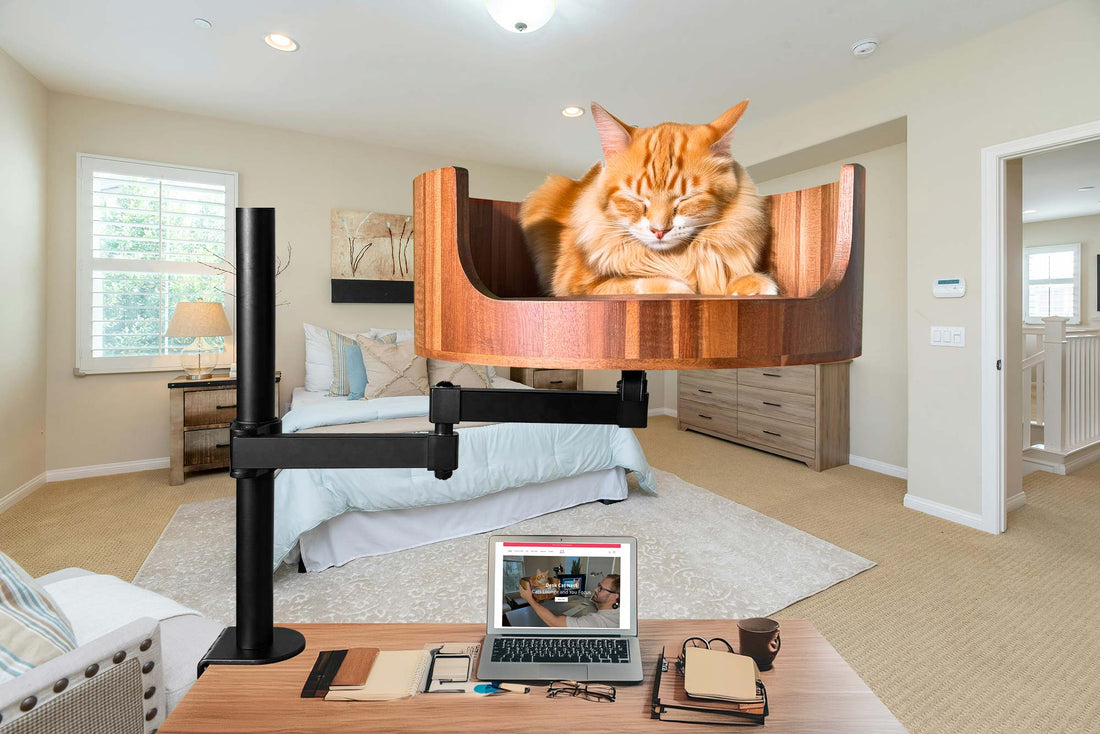
Why Does My Cat Eat Grass? Understanding Feline Behavior
Share
Have you ever noticed your feline friend munching on grass from your yard or houseplants? While it may seem strange, this behavior is actually quite common among cats. In this article, we will explore the reasons behind why cats eat grass and what it can tell us about their overall behavior and health.
Understanding why cats eat grass is important for owners to ensure the well-being of their pets. By delving into the instinctual and biological reasons behind this behavior, we can gain insights into our furry companions' needs and preferences. From digestive health to behavioral cues, the act of grass-eating can provide valuable clues about your cat's overall wellness. Join us as we uncover the mysteries behind this common feline behavior and learn how to better care for your beloved pet.
1. Cats may eat grass to aid in digestion or to help expel hairballs.
2. Grass can provide essential nutrients like folic acid and fiber that may be lacking in a cat's diet.
3. Eating grass is a natural behavior for cats and can help them maintain their dental health.
4. Some cats may eat grass as a form of self-medication to soothe an upset stomach.
5. While consuming grass is generally considered safe for cats, it's essential to ensure they're not ingesting any toxic plants.
What is the significance of cats eating grass?
Cats are obligate carnivores, meaning their natural diet consists of meat. However, many domestic cats are known to eat grass, even though they cannot fully digest it. There are several theories as to why cats engage in this behavior, including aiding digestion, treating stomach discomfort, and providing essential nutrients.
Common reasons why cats eat grass
Some theories suggest that cats eat grass to help with digestion by inducing vomiting to eliminate furballs or other indigestible material. Grass may also act as a laxative, aiding in the elimination of hairballs or parasites from the digestive system. Additionally, cats may consume grass to fulfill their instinctual urge to self-medicate or seek relief from gastrointestinal issues.
Is it harmful for cats to eat grass?
While consuming small amounts of grass is generally safe for cats, it is essential to monitor their behavior and the types of grass they consume. Indoor cats should be provided with safe grass alternatives, such as cat grass, to prevent them from ingesting toxic plants or pesticides. If a cat shows signs of distress, vomiting, or unusual behavior after eating grass, it is recommended to consult a veterinarian for further evaluation.
Tips for managing your cat's grass-eating behavior
To prevent your cat from consuming potentially harmful grass, consider providing them with safe alternatives, such as cat grass or wheatgrass, which are specifically grown for pets. You can also create a designated outdoor area or cat garden where your feline companion can safely graze on grass. Additionally, ensuring your cat has a balanced diet and regular check-ups with a veterinarian can help address any underlying health issues that may contribute to their grass-eating behavior.
Frequently Asked Questions
Why does my cat eat grass?
Cats may eat grass for several reasons, including aiding digestion, obtaining essential nutrients like folic acid, and helping to eliminate hairballs. Eating grass can also be a natural behavior for cats.
Is it safe for my cat to eat grass?
In general, eating grass is safe for most cats. However, it's essential to ensure that the grass your cat is eating is free from pesticides or other chemicals that could be harmful. Providing your cat with a safe alternative like the Desk Cat Nest can help prevent them from consuming potentially dangerous grass.
Will the Desk Cat Nest help prevent my cat from eating grass?
The Desk Cat Nest provides a safe and comfortable alternative for your cat to satisfy their natural inclination to chew on grass. By offering this alternative, you can help discourage your cat from consuming potentially harmful outdoor grass.
How can I introduce the Desk Cat Nest to my cat?
Introduce the Desk Cat Nest to your cat gradually by placing it in an area where your cat likes to relax. Sprinkle some catnip or treats inside the nest to encourage your cat to investigate. Over time, your cat will learn to associate the Desk Cat Nest with a safe and enjoyable chewing experience.
In conclusion, providing your cat with a Desk Cat Bed can help address the issue of why your cat may be eating grass. By offering a comfortable and inviting space for your cat to rest and relax indoors, they are less likely to seek out grass as a soothing or stress-relief mechanism. The Desk Cat Bed not only provides your feline friend with a cozy spot to nap, but it also helps promote overall well-being and reduce the urge to ingest potentially harmful grasses. Invest in a Desk Cat Bed today and give your cat a safe and comforting alternative to outdoor grazing.



















































